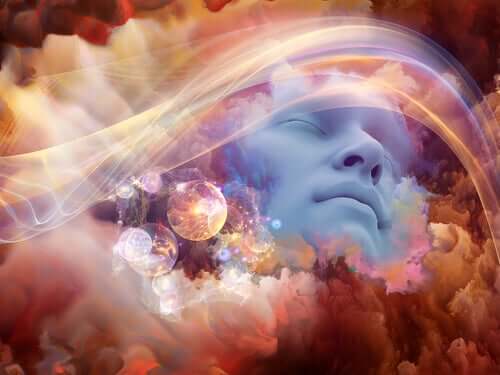Dean Radin is definitely a controversial intellectual. Among its merits and controversies is the fact that it created the Sonhos de Gaia (Gaia Dreams) project.
He and the project itself have been severely criticized by the scientific community, however, none can be considered the result of chatter, mainly because they seek experimental support to support their claims.
- Radin is not a guru who has published a bestseller.
- Nor became a millionaire with pseudoscientific claims.
- This researcher is an electrical engineer at the University of Massachusetts at Amherst.
- And has a master’s degree in electrical engineering and a PhD in Education Psychology from the University of Illinois.
He has conducted research at Princeton University, GTE Laboratories, the University of Edinburgh, SRI International, Interval Research Corporation and has been a professor at the University of Nevada, Las Vegas.
Of course, all these titles don’t mean you’re right, they just show someone who’s really interested in scientific knowledge. Gaia’s Sonhos project is one of his intellectual adventures.
“A dream is a small door hidden in the deepest and most intimate sanctuary of the soul, which opens to the cosmic and primordial night, which is the soul, long before the conscious ego exists” – Carl Jung-
For at least two decades, Dean Radin has devoted himself to the study of so-called “psi phenomena”, extrasensory phenomena. Almost all of his studies combine the collection of a large amount of data, with the subsequent collation of information. It is an inductive method widely used in science.
One of the first studies cited by Radin was a survey conducted by the University of Illinois for people who meditated regularly. They were asked if they had ever experienced foresight, precognition and something similar to the psychic. The result was that 75% of meditators said they had experienced such phenomena.
This study and others resulted in a book called Supernormal: Science, Yoga and the Evidence for Extraordinary Psychic Abilities, in 2013. Over time, Radin has linked such phenomena to Jung’s theory of quantum mechanics and psychology. He believes that this type fenómenos. de subject has more and more place in academia.
Another project called the Global Consciousness Project is the immediate history of the Sonhos project, which began in 1998 and, as it says on its website, aims to: “Explore whether the construction of an interconnected consciousness can be scientifically validated by an objective measure”.
Basically, what they’re doing is asking meditators for information about supposed precognitions or forward-looking views, then collating that information and find matches. They say it allows them to make predictions about events important to humanity. They claim to have predicted the 9/11 terrorist attacks in New York and other similar events, for example.
In the opinion of the people who are part of this project, the idea is based on the concept of “collective unconscious” proposed by Carl Jung. As they point out, dreamlike images not only provide information about the individual unconscious, but also fulfill the role of anticipating collective reality.
Gaia’s Sonhos project is an experience where everyone can access a website and share their dreams. Using computer tools, the information contained in these dreams is crossed to find common patterns. Dean Radin thinks these similarities match collective unconscious?And it will give clues about future events.
It is not easy to establish the extent to which this exploration is really based on Jung’s ideas. In fact, this psychoanalyst was very secretive; his study of mythology led him to consult the astrological maps of his patients, as well as to use Tarot to reveal its meanings. Jung’s work is full of allusions to these kinds of subjects.
Whether or not the Sonhos de Gaia project leads to premonitions, as Radin guarantees, it is definitely an interesting bet.
Of course, this can show that, deep down, human beings are equal regardless of nationality, their desires, fears and expectations, especially in a globalized world, are repeated, regardless of cultural peculiarities.

